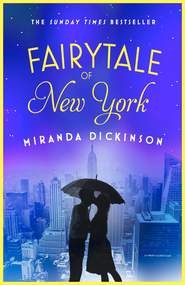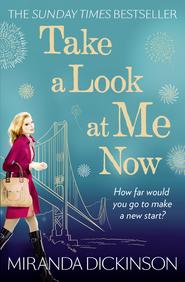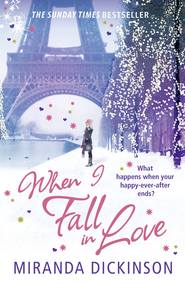По всем вопросам обращайтесь на: info@litportal.ru
(©) 2003-2024.
✖
The Day We Meet Again
Автор
Год написания книги
2019
Настройки чтения
Размер шрифта
Высота строк
Поля
Donal and Kate’s house is cosy, but accommodating three adults, three children and an elderly corgi is stretching its capabilities. Where they’re going to put Niven tonight is anyone’s guess.
‘When I’m on my way back to London, I’ll come and stay again for a night. How’s that?’ I look over to Donal and Kate, who nod happily. ‘And of course you’re all welcome to visit when I’m settled on Mull.’
‘I’ve plenty of room at mine for the lot of yous.’ Niven grins and instantly the kids are placated. He has that ability to be oil on troubled waters – always has. Where Kate was the mum of the group, and Donal the dreamer, Niven was our peacemaker. Maybe that’s why he’s been so successful as a teacher. Island kids face all kind of issues mainland children don’t get and behaviour can be a problem when frustrations rear up. With Mr McNish in charge, the kids have the best chance of navigating it.
‘What brings you here, anyway?’ I ask, my question answered when I see Niven exchange a glance with Kate. ‘Ah.’
‘Now don’t be mad at Kate. I’ve been on a residential course in Glasgow for a fortnight so I was on my way back anyway. The timing was just – providential.’
Providential my ass. Knowing this lot they will have cooked up the whole thing between them. ‘Right. And I don’t suppose you were planning to travel back to Mull tomorrow by any chance?’
Niven’s grin could charm swallows out of the sky. Man, I’ve missed my friends.
I’d always envisioned making my way to Mull alone, but secretly I’m glad of my surprise travelling companion. Going home is never simple – Kate and the gang understand that. At university there were Christmases and Easter breaks and summer holidays where everyone else piled off to their families and I just didn’t. My friends clocked this early and so I always ended up with invitations to stay from across the UK and Ireland. I’ll forever be grateful that they noticed and didn’t let me wallow alone.
There’s so much stuff wrapped around the Island and me. It’s where I was born, where two generations of my family lived before me, so it’s in my blood. But it’s complicated. My father made that happen. I’m going home because I want to understand that: who I am and where I came from, but also why Dad walked away. I have a year with no commitments, barring meeting Phoebe at the end of it. I might never have this luxury again.
We spend the day hanging out and chatting, moving between the house and Donal’s studio, until the inevitable happens and Addie, Ivor and Lexie beg us to play something. Niven doesn’t have his fiddle, so he borrows Lexie’s while I fetch mine; Donal and Kate grab guitars from the impressive selection hanging on hooks across one wooden wall of the studio; Ivor sits at the keyboard, Lexie chooses a tin whistle and Addie produces a bodhrán drum.
I love the moment when musicians gather. The shuffle and tuning, the moving of chairs and sharing of smiles. It’s all part of it, before a single note plays. There’s a peace that settles between musicians before the music begins, a silence that’s both comforting and energising. Because before it is preparation and after it is music – an adventure shared between likeminded souls. I remember a professor of ours saying there’s no way to describe music without expressing how it makes you feel. And it’s true. You can know everything about the theory and the mechanics of music, but it all means nothing without experiencing it.
When we play, it’s messy and unrehearsed and we laugh as we miss chords and hit bum notes, but it’s still magical. And for me, it’s family. I’ve missed it. I’ve missed the immediacy of it: you sit down, you play. No agonising beforehand, no getting mired in plans and strategies. When I play, I’m not thinking about anything but the music.
The last time I felt like that was… with Phoebe.
When I get to Mull, I’m going to call her. Screw the rules. I reckon we’ll figure it out as we go. Besides, I need to hear her voice.
Next day, I am staring at a stack of garish tourist postcards, turning the white wire carousel slowly to find one that won’t make Phoebe reconsider me on the spot. I wasn’t the biggest fan of her idea to send cards to one another. But receiving hers this morning as I prepared to leave for Mull was the loveliest thing. Like she’d just snuck into Kate and Donal’s hall to smile at me.
So my first postcard back to her has to be right.
On reflection, the ferry terminal at Oban was maybe not the best place to do this. We didn’t have time to buy anything at Glasgow Queen Street because Niven and I missed the first bus back to the city from Donal and Kate’s, so we entered the station like a pair of crazy rucksack-toting sprinters and only just caught the train.
Ironically, I now have several hours to make my choice from the slim pickings here. The weather’s closed in since we arrived and the last two ferries were cancelled. Is this entire year going to be one long delay?
‘Are these supposed to make people stay away from Scotland?’ Niven reaches past me and picks one with a psychedelic tartan piper on it, who appears to be striding up the middle of a B-road in the Highlands. His hair is an unnatural shade of satsuma and his swinging kilt so scarlet it practically jumps off the card and slaps your face. ‘I wouldn’t want to meet that fella on a deserted road. Or receive this image in the post when I’ve a hangover.’
He has a point. In the end I opt for a too-green Highland landscape, its tartan border only slightly less offensive than the others on offer, and take it to the gravel-faced assistant behind the counter to pay.
‘Were you hoping for a crossing?’ he asks.
‘Yep.’
He makes a sucking sound with his teeth like the noise of water draining down an almost-blocked sink. ‘You’ll be lucky to get across this side of dark,’ he says. Ah, the cheery banter of the ferry port. I’d forgotten the joys. ‘You two lads on a jolly over there?’
‘Seeing family,’ I say, hiding my smile when he gawps at me. Clearly he’d pegged me as a tourist.
‘Ach, well. Not a good day for that either, I reckon.’
Like I said, cheery.
‘He thought you were English,’ Niven mocks as we head for the dubious-looking snack concession at the far edge of the car park, the only food provider brave (or daft) enough to be open in this weather. The food kiosk in the ferry terminal was already locked and shuttered when we arrived.
‘No he didn’t.’
‘Face it: you’ve been away too long, Mullins. Swallowed up by that great big London place. Your people have forgotten you.’
‘Shut up.’ I smile, but my stomach shifts.
I know Ailish will be glad to see me, but does anyone else from my early life remember me? My family didn’t exactly leave with a farewell parade. I still remember the shock of being woken before the sun, Ma stuffing just what she could carry into holdalls and bin bags, dragging Callum and me away from the only other home we’d known: Grandma’s house.
My maternal grandmother is long gone and I don’t miss her. She made Ma’s life hell after our pre-dawn escape from her home on Mull and I don’t think she ever forgave her, spitting out her bile and fury at us long distance in phone calls my mother felt obliged to endure. Grandma loved my father, you see. Thought he could do no wrong. Ma was a failure for not being enough of a woman to keep him.
I shouldn’t be glad someone is dead, but in her case I am. I’m pretty sure Grandma’s hateful attitude to Ma added to her self-loathing, hastening her own death from years of alcohol and hurt. It’s part of why us returning to Mull as a family was never an option. Ailish was here, of course, Niven too – although I don’t remember him much as a kid because we moved away so early. The coincidence of meeting him again over five hundred miles away at university in London felt like a gift of providence. Still does.
We brave a coffee and a bacon roll each and scurry back to the shelter of the ferry terminal.
‘Don’t take the lid off your coffee,’ Niven says when we’re squeezed onto bright-blue rigid plastic chairs in the departure lounge.
‘Why?’
‘It’s not pretty. I didn’t know coffee came in grey.’
‘It’s warm and it’s wet. That’s all I care about.’ I roll my eyes as Niven chokes on his sub-standard coffee. ‘You haven’t changed.’
‘Apart from being AWOL from the Island,’ he says, wiping coffee from his chin.
‘What’s going on there?’
My friend slumps in his unforgiving seat. ‘It’s complicated.’
‘How?’
‘Can’t really explain. My mates at home reckon it’s a premature midlife crisis. It’s just – nothing seems as fulfilling as it did before.’
‘Before Ruth?’ I’m careful not to look at him when I say it.
‘Not just that. Lots of things, really. Ruth was the start of it, I think.’
‘The teaching?’
I see his boots tapping together. A sure sign he feels uncomfortable. It isn’t that he can’t take confrontation, more that he’d rather work it out himself than by committee.
‘I love the kids. I’ll always love working with them. But since Ruth, everything’s come up for renewal. When we were together I was looking to a future where a safe job on the Island was necessary. But now… now I just don’t know.’
When I’ve pictured returning to Mull, Niven in his teaching job was as sure and immovable a feature as Duart Castle or the peak of Ben More. I hadn’t realised how much the break-up could shake him. But that’s the point – I haven’t noticed because I haven’t been involved in my friends’ lives for so long.
This year, I will be a better friend to them all.











